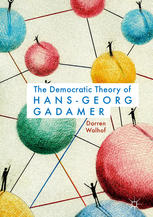

Most ebook files are in PDF format, so you can easily read them using various software such as Foxit Reader or directly on the Google Chrome browser.
Some ebook files are released by publishers in other formats such as .awz, .mobi, .epub, .fb2, etc. You may need to install specific software to read these formats on mobile/PC, such as Calibre.
Please read the tutorial at this link: https://ebookbell.com/faq
We offer FREE conversion to the popular formats you request; however, this may take some time. Therefore, right after payment, please email us, and we will try to provide the service as quickly as possible.
For some exceptional file formats or broken links (if any), please refrain from opening any disputes. Instead, email us first, and we will try to assist within a maximum of 6 hours.
EbookBell Team

0.0
0 reviewsThis book examines the distinctive contribution that the writings of Hans-Georg Gadamer make to democratic theory. Walhof argues that Gadamer’s hermeneutical philosophy enlarges our perspective by shifting our view away from individual citizens to what exists between citizens, thereby allowing us to envision political realities that are otherwise hard to see. These realities include the disclosure of truth in democratic politics; achieving common ground in democratic dialogue, even amidst significant disagreement and diversity; the public and political nature of the religious traditions that make claims on and shape citizens; and the solidarities that connect us to each other and enable democratic action. The author argues that bringing these dimensions to awareness enriches our theories of democracy and is particularly crucial in an era of hyper-partisanship, accelerating inequality, and social conflicts involving racial, sexual, and religious identities.